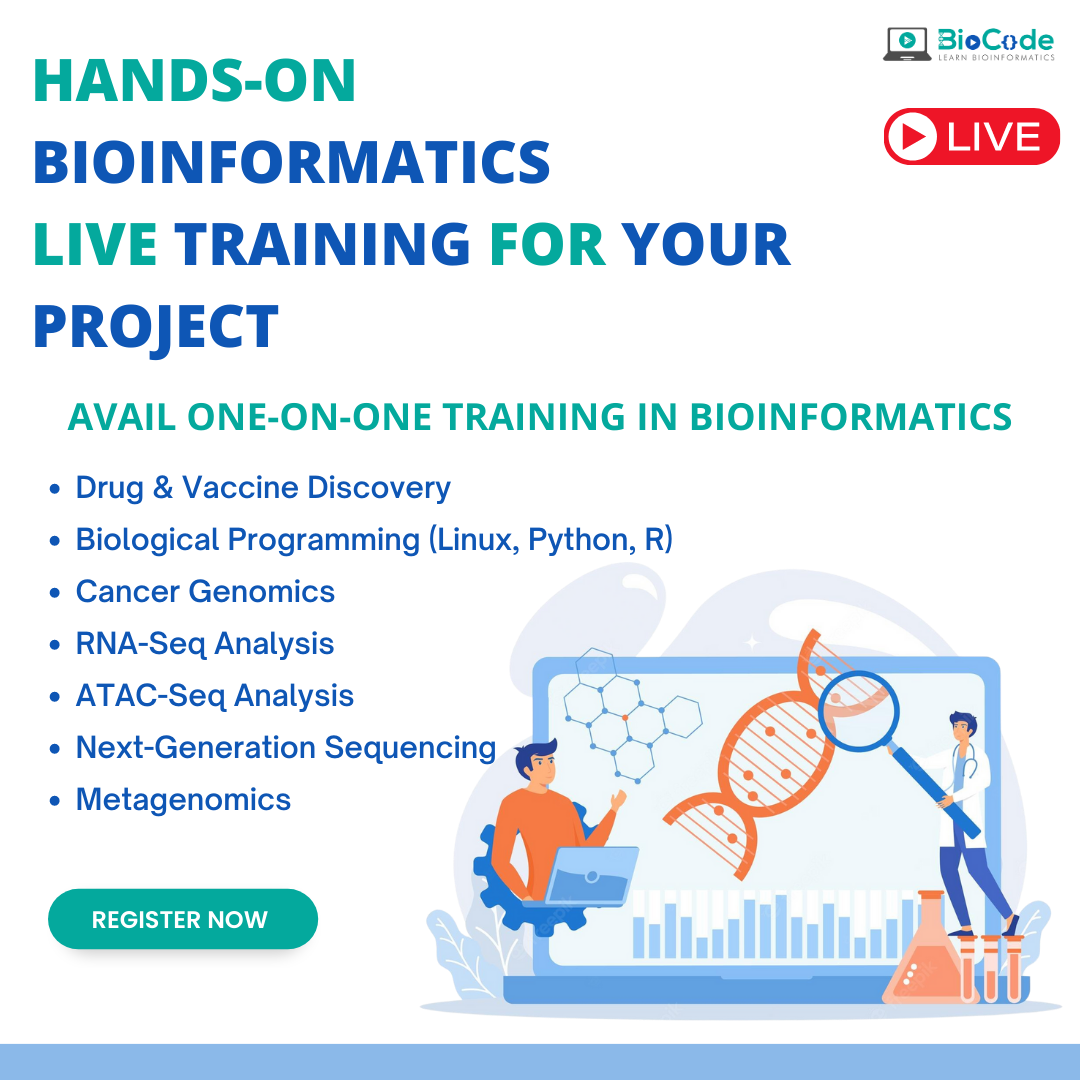How Bioinformatics Tutor can Save You Time, Stress, and Money.
How Bioinformatics Tutor can Save You Time, Stress, and Money.
Blog Article
8 Simple Techniques For Bioinformatics Tutor
Table of ContentsLittle Known Questions About Bioinformatics Tutor.10 Simple Techniques For Bioinformatics TutorThe Bioinformatics Tutor StatementsBioinformatics Tutor Can Be Fun For AnyoneSome Ideas on Bioinformatics Tutor You Need To Know
Of the overall individuals associated with the training, 80% were students from public college establishments, while the remaining 20% originated from exclusive institutions. To get approved for a certificate of participation, students were required to attend a minimum of 90% of the total training hours. As an outcome of this need, an outstanding 95% of the participants successfully obtained their certificates, having not only met the minimum attendance standards but likewise completed all assigned tasks throughout the training.During the elevation of the COVID-19 pandemic, especially between June and August 2020, the job team was entrusted with organizing specialized training in bioinformatics. This training was specifically focused on pupils from the research team Core for Research in Applied Computer at the Federal University of Pará (UFRA) The adaptation to remote discovering platforms due to the pandemic created a chance to discover brand-new teaching techniques and digital tools that improved both reach and performance.
This training course was designed to give an available yet thorough summary of Artificial Knowledge techniques, specifically as applied in bioinformatics (Bioinformatics Tutor). This online layout made it possible for involvement from students across Brazil, many of whom could not have had the possibility to attend in-person sessions.
Bioinformatics Tutor Can Be Fun For Everyone
Approximately 50% of the complete training hours were devoted to practical tasks where pupils built intelligent versions and applications in a range of scientific domain names, including genetics, molecular biology, and ecological information evaluation. These systems enabled trainees to involve in real-time data adjustment, design training, and algorithm experimentation.
The course drew in 80 individuals in total amount. Sixty of them were connected with various greater education and learning establishments in the state of Pará, while the staying twenty originated from institutions located in five various other Brazilian states. This broad geographical representation highlighted the nationwide interest in bioinformatics and the expanding demand for specialized skills in this field. By presenting Expert system in a relevant and functional context, the effort served to connect the space between theory and real-world application, giving students with a strong foundation for future research or work in the field.
The training effort created component of a wider scholastic outreach effort recognized as the Bioinformatics on the Road project. This project has, throughout the years, presented lots of students to the globe of bioinformatics and computational biology. The events held under this umbrella campaign have happened across numerous areas and years, as summarized in Table 1 (List of events, locations, years, and overall numbers of trainees and teachers)
Several of these teams, originally brought together by their engagement in training occasions, have since gone on to produce independent scientific research study in collaboration with neighborhood academic organizations. The training not only fostered clinical reasoning within the context of bioinformatics yet also triggered joint relationships that prolonged past the training atmosphere.
Bioinformatics Tutor Fundamentals Explained
The same group, excluding IH and RR, additionally acted as tutors for the sensible training modules. Funding for the job was given through the grant 88887.200562/ 2018-00 from CAPES.
The Federal University of Pará's Workplace of Study description (PROPESP/UFPA) also offered financial backing, especially for the production of the final manuscript. The writers declare no monetary or business disputes of interest that can have influenced the research. Moreover, all point of views and interpretations revealed in this article are only those of the writers and do not always show those of their particular organizations, the publisher, editors, or reviewers involved in the magazine procedure.

Not known Factual Statements About Bioinformatics Tutor
From an instructional point of view, the teaching strategy made use of in the training was intentionally interactive. Courses were carried out in a way that encouraged trainee participation and discussion, exceeding memorizing memorization to check out just how concepts are established, applied in everyday life, and evaluated in academic settings. The training ideology focused on supporting both solid and struggling pupils, giving personalized support, and structure confidence through sustained mentorship and perseverance.

Each group, containing about 36 individuals, was sustained by 3 coaches-- most of whom were postdoctoral researchers with specialized proficiency. These advisors not just aided create the group projects but additionally promoted their implementation, guaranteeing that each research question was both relevant and properly challenging. The goal was to offer a biologically practical context that individuals could explore via open-ended objectives and accessibility to curated datasets.
For additional understandings right into the technique and outcomes of this project-based discovering technique, visitors are guided to S1 directory Text, that includes in-depth summaries of the pedagogical framework, analysis techniques, and job motifs utilized in the training sessions.
The 45-Second Trick For Bioinformatics Tutor
Of the total individuals included in the training, 80% were students from public higher education establishments, while the continuing to be 20% came from personal organizations. To certify for a certification of engagement, pupils were needed to go to at least 90% of the total training hours. Notably, past the students that enrolled in the training sessions, 7 skilled trainers participated in providing the programs, while 3 dedicated research study professors collaborated the general training process. Approximately 50% of the total training hours were dedicated to useful tasks where trainees constructed smart designs and applications in an array of scientific domains, including genes, molecular biology, and environmental data analysis. The training not just fostered scientific reasoning within the context of bioinformatics yet likewise stimulated collaborative partnerships that expanded past the training you could try here atmosphere.
Report this page